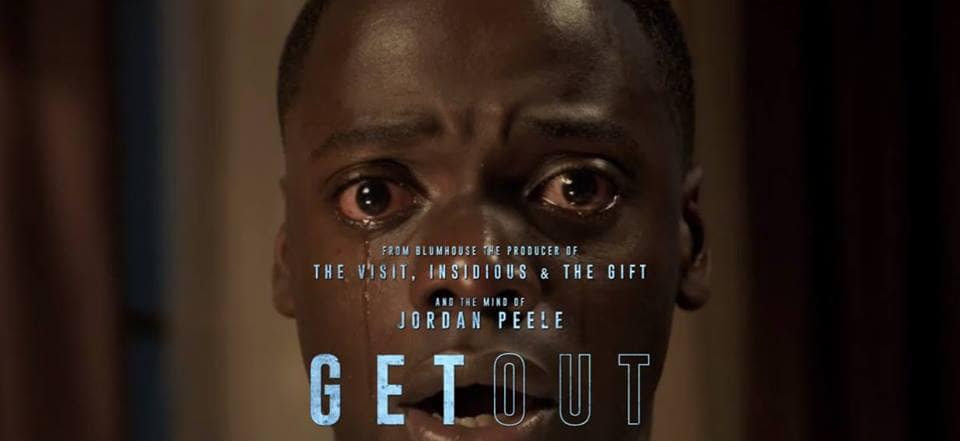
From the mind of writer/director Jordan Peele, best known as part of the Key & Peele sketch comedy show that wrapped up its five season run on Comedy Central last year, comes Get Out, a horror movie sucks you in with its simple story laced with genre awareness and reverence. The film feels both familiar and new, formally earning it, in my book, the instant classic status. You can see the all the strains of influence on Peele’s movie, as well as his clear intent and vision for the film. It’s an impressive directorial debut.
He uses the techniques of the likes of Hitchcock and Carpenter to tell the story of Chris (Daniel Kaluuya), an African-American man who meets his white girlfriend Rose’s (Allison Williams) family over a weekend. Of course, not all is what it seems and the good-natured ignorance of Rose’s family gives way to far more sinister stuff.
Given it’s no-frills set-up about a get-together gone awry, it recalls last year’s horror sleeper hit The Invitation from director Karyn Kusama. Bot she and Peele elevate a fairly-standard horror movie premise, of a trip or get-together gone awry, by infusing it with layers of meaning and depth of imagination. Like all good films – and, indeed, all good stories – the magic of Get Out is not in what it’s about, but in how it’s told and why it’s important to the storyteller.
Peele offers a clear vision: a darkly comic horror movie that analyzes and deconstructs racism in its Hydra-like form. There’s plenty of social commentary, a byproduct of Peele’s keen comedic talent, much recalling the themes of The Stepford Wives, another example of allegorical horror.
The genre trappings are dressing for the message. Peele wants to impart, which is that benevolent racism is still racism and often merely a symptom of deeper resentment and hate. The fantastical happenings are a metaphor for positive discrimination, institutional racism, and cultural appropriation.
Kaluuya is an excellent audience surrogate, his highly-expressive face dominating many of the movie’s moments, grounding them with a touch of side eye or an uncomfortable smile. Befitting a story with something on its mind, the family is made of excellent character actors like Catherine Keener, Bradley Whitford, Caleb Landry Jones, and Stephen Root. Peele’s comic talent isn’t wasted either, making its way in mostly via Chris’ best friend Rod (Lil Rel Howery).
There’s a keen understanding of narrative at work. The pacing is brisk but deliberate and, along with Kaluuya, does wonders for disarming both the character and the viewer. The dark comedy of Chris’ awkward interactions and ignorant, casual racism is steadily ramped up until the inevitable third act explosion of violence. When it does come, I gotta say, it’s been a while since I’ve been in a theater where people were clapping and rooting for the protagonist as actively as the audience in my theater was.
It has the concise communication of comedy melded with the highly-effective language of cinematic horror. Peele builds his tension from everyday interactions, taking “normal” racism and microaggressions and casting them in the light of genre. The shadows that dance from this method are both truthful and uncomfortable, both pre-requisites for accomplished satire and horror.
Get Out is already a huge success, with over $30 million on opening weekend against a $4 million budget and overwhelming positive reviews (holding 100 percent on Rotten Tomatoes initially). The lightning strike of success is a result of a confluence and multiple factors. Blumhouse, the horror-centric outlet behind the film, continues its domination on the heels Split and after spending almost a decade building a catalog of cheap-but-effective horror franchises, like Paranormal Activity, Insidious, Sinister, and The Purge. The Donald Trump presidency has cast a political shadow on everything.
Our beloved “melting pot” is boiling. Art has always been political. It’s simply peoples’ awareness of it that is different now. And Get Out is art for the ages.
Be First to Comment